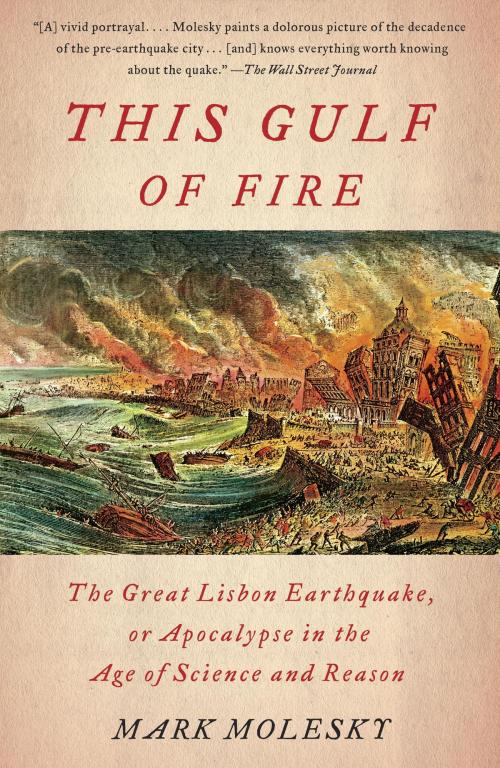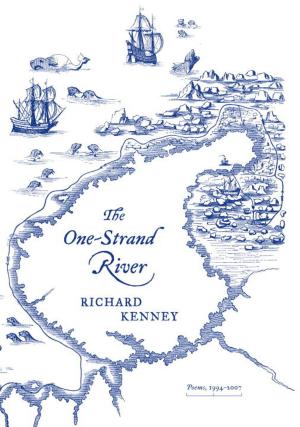This Gulf of Fire
The Destruction of Lisbon, or Apocalypse in the Age of Science and Reason
Nonfiction, History, Modern, 18th Century, Science & Nature, Nature, Environment, Natural Disasters, European General| Author: | Mark Molesky | ISBN: | 9781101875827 |
| Publisher: | Knopf Doubleday Publishing Group | Publication: | November 3, 2015 |
| Imprint: | Vintage | Language: | English |
| Author: | Mark Molesky |
| ISBN: | 9781101875827 |
| Publisher: | Knopf Doubleday Publishing Group |
| Publication: | November 3, 2015 |
| Imprint: | Vintage |
| Language: | English |
Winner of the Phi Alpha Theta Best Subsequent Book Award
Finalist: Los Angeles Times Book Prize
The captivating and definitive account of the most consequential natural disaster of modern times.
On All Saints’ Day 1755, tremors from an earthquake measuring perhaps 9.0 (or higher) on the moment magnitude scale swept furiously from their origin along the Atlantic seabed toward the Iberian and African coasts. Directly in their path was Lisbon, then one of the wealthiest cities in the world and the capital of a vast global empire. Within minutes, much of the city lay in ruins.
But this was only the beginning. A half hour later, a giant tsunami unleashed by the quake smashed into Portugal’s coastline and barreled up the Tagus River, carrying countless thousands out to sea. By day’s end, the great wave chain would claim victims on four separate continents. To complete Lisbon’s destruction, a hellacious firestorm then engulfed the city’s shattered remains. Subjecting survivors to temperatures exceeding 1,832°F (1,000°C), it burned for several weeks, killing thousands and incinerating much of what the earthquake and tsunami had spared.
Drawing on a wealth of new sources, the latest scientific research, and a sophisticated grasp of European history, Mark Molesky gives us the authoritative account of the Great Lisbon Disaster and its impact on the Western world—including descriptions of the world’s first international relief effort; the rise of a brutal, yet modernizing, dictatorship in Portugal; and the effect of the disaster on the spirit and direction of the European Enlightenment.
Much more than a chronicle of destruction, This Gulf of Fire is, at its heart, a gripping human drama, involving an array of unforgettable characters—such as the Marquês de Pombal, the once-slighted striver who sees in the chaos his path to supreme power, and Gabriel Malagrida, the charismatic Jesuit whose view that the earthquake was a punishment sent by God leads inexorably to his demise. There is Dom José, the unremarkable king of Portugal, who stands by his people in their moment of greatest need but ultimately abandons them to the tyranny of his first minister. There is Kitty Witham, the plucky English nun who helps her fellow sisters escape from their collapsing convent, and Manoel Portal, the Oratorian priest who flees the burning capital on his broken leg and goes on to write one of the definitive accounts of the disaster. Philosophers, kings, poets, emperors, scientists, scoundrels, journalists, and monkeys all make their appearance in this remarkable narrative of the mid-eighteenth century.
Winner of the Phi Alpha Theta Best Subsequent Book Award
Finalist: Los Angeles Times Book Prize
The captivating and definitive account of the most consequential natural disaster of modern times.
On All Saints’ Day 1755, tremors from an earthquake measuring perhaps 9.0 (or higher) on the moment magnitude scale swept furiously from their origin along the Atlantic seabed toward the Iberian and African coasts. Directly in their path was Lisbon, then one of the wealthiest cities in the world and the capital of a vast global empire. Within minutes, much of the city lay in ruins.
But this was only the beginning. A half hour later, a giant tsunami unleashed by the quake smashed into Portugal’s coastline and barreled up the Tagus River, carrying countless thousands out to sea. By day’s end, the great wave chain would claim victims on four separate continents. To complete Lisbon’s destruction, a hellacious firestorm then engulfed the city’s shattered remains. Subjecting survivors to temperatures exceeding 1,832°F (1,000°C), it burned for several weeks, killing thousands and incinerating much of what the earthquake and tsunami had spared.
Drawing on a wealth of new sources, the latest scientific research, and a sophisticated grasp of European history, Mark Molesky gives us the authoritative account of the Great Lisbon Disaster and its impact on the Western world—including descriptions of the world’s first international relief effort; the rise of a brutal, yet modernizing, dictatorship in Portugal; and the effect of the disaster on the spirit and direction of the European Enlightenment.
Much more than a chronicle of destruction, This Gulf of Fire is, at its heart, a gripping human drama, involving an array of unforgettable characters—such as the Marquês de Pombal, the once-slighted striver who sees in the chaos his path to supreme power, and Gabriel Malagrida, the charismatic Jesuit whose view that the earthquake was a punishment sent by God leads inexorably to his demise. There is Dom José, the unremarkable king of Portugal, who stands by his people in their moment of greatest need but ultimately abandons them to the tyranny of his first minister. There is Kitty Witham, the plucky English nun who helps her fellow sisters escape from their collapsing convent, and Manoel Portal, the Oratorian priest who flees the burning capital on his broken leg and goes on to write one of the definitive accounts of the disaster. Philosophers, kings, poets, emperors, scientists, scoundrels, journalists, and monkeys all make their appearance in this remarkable narrative of the mid-eighteenth century.















